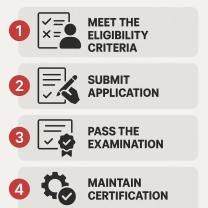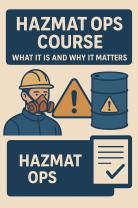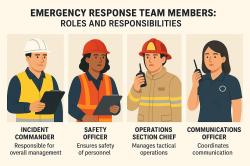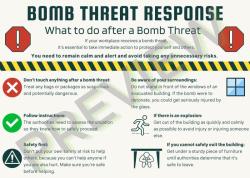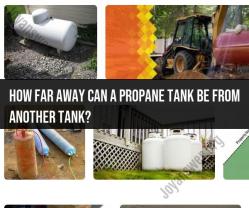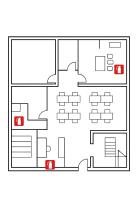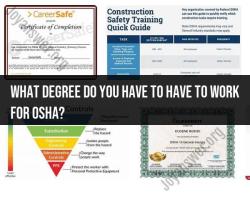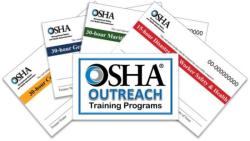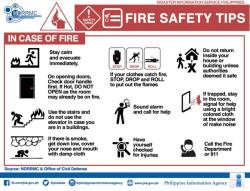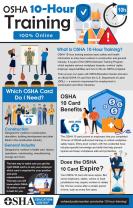Who is not covered by OSHA?
While the Occupational Safety and Health Administration (OSHA) in the United States covers a wide range of workers and workplaces, there are specific groups and individuals who may not be covered by OSHA regulations. It's important to note that OSHA exemptions can vary, and some individuals may fall under state OSHA regulations or other federal regulations. Here are some groups that may not be covered by OSHA:
Self-Employed Individuals:
- OSHA generally does not cover self-employed individuals with no employees. However, if a self-employed person hires employees, those employees are covered by OSHA regulations.
Immediate Family Members on Family Farms:
- Immediate family members (spouses, children, parents, and siblings) working on family farms are often exempt from OSHA regulations. This exemption may vary based on state regulations and the size of the farm.
Employees Covered by Other Federal Agencies:
- Some industries are regulated by other federal agencies, and OSHA may not have jurisdiction over specific safety and health issues in those workplaces. For example, mine safety is regulated by the Mine Safety and Health Administration (MSHA), and nuclear facilities are regulated by the Nuclear Regulatory Commission (NRC).
Certain Public Sector Employees:
- OSHA does not cover state and local government employees in states that operate their own occupational safety and health programs approved by OSHA. Instead, these employees are covered by the state's OSHA plan.
Federal Government Employees:
- Federal government employees are not covered by OSHA. Instead, federal agencies have their own occupational safety and health programs. Federal agencies are required to comply with safety and health standards issued by the Secretary of Labor, but enforcement is carried out by the respective federal agency.
Employees in Industries Regulated by Other Federal Acts:
- Some workers in industries regulated by other federal acts may not be covered by OSHA. For example, certain aspects of transportation safety are regulated by the Department of Transportation (DOT) for workers in the aviation and trucking industries.
Volunteers:
- OSHA does not cover volunteers who perform work for charitable, religious, or nonprofit organizations. However, if an organization hires employees, those employees are covered by OSHA.
Domestic Workers:
- Some domestic workers, such as housekeepers and nannies, may not be covered by OSHA. Domestic employment is generally excluded from OSHA coverage.
It's important to consult specific OSHA regulations and state regulations to determine the precise coverage and exemptions that apply in different situations. State OSHA plans may have additional or different coverage requirements, so employers and workers should be aware of the regulations that pertain to their specific circumstances.
Who falls outside the coverage provided by OSHA?
Several categories of workers and workplaces fall outside the coverage provided by the Occupational Safety and Health Administration (OSHA):
1. State and Local Government Workers:
- While not directly covered by Federal OSHA, they may be protected by their state's OSHA plan, which must be at least as effective as the federal program. However, some government agencies like police and firefighters might have different safety regulations under specific agencies.
2. Self-Employed Individuals:
- They are not considered "employees" under the Occupational Safety and Health Act and are therefore exempt from OSHA coverage. However, they are still responsible for their own safety and well-being.
3. Immediate Family Members on Family Farms:
- Spouses, children, and parents working for their family-owned farms are exempt from OSHA. This assumes they have a personal interest in the farm's safety and well-being. Some states might have their own regulations for them.
4. Maritime Industry:
- Workers on commercial vessels fall under the jurisdiction of the United States Coast Guard, which has its own safety regulations. Similarly, workers on fixed offshore drilling platforms are covered by the Bureau of Safety and Environmental Enforcement (BSEE).
5. Mining Industry:
- Mine workers are covered by the Mine Safety and Health Administration (MSHA) within the Department of Labor, with separate safety regulations for various types of mines.
6. Federal Agencies and Employees:
- They are not covered by OSHA but protected by their agencies' own safety and health programs, which must meet or exceed OSHA standards.
7. Certain Agricultural Operations:
- Small farms with 10 or fewer employees are exempt from most OSHA record-keeping requirements but still subject to the general duty clause requiring a safe workplace.
8. Some Other Exemptions:
- Volunteers working for non-profit organizations without compensation.
- Employees of religious organizations performing religious duties.
- Certain private households employing domestic workers.
It's important to note:
- Even if exempt from OSHA, some workers might have protection under other regulations or laws.
- Employers still have a general duty to provide a safe work environment for all employees.
- Consulting OSHA or your state's labor department regarding specific situations is recommended for clarity.
Remember, even though individuals or workplaces might be exempt from OSHA, prioritizing safety and health in the workplace remains crucial. Other regulations, ethical considerations, and industry best practices play a valuable role in protecting workers from harm.


